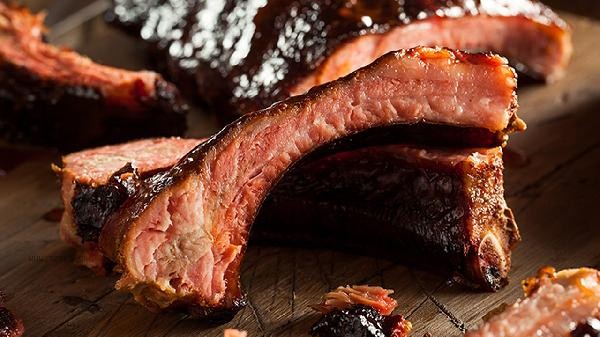The commonly used flavoring agents for cooking pork include star anise, cinnamon, fragrant leaves, Sichuan pepper, grass fruit, etc. These spices can effectively remove fishy odor, enhance meat aroma, and have a better effect when used in combination.

1. Octagonal
Octagonal is the core spice for cooking pork, containing rich fennel brain components that can penetrate the meat and produce a rich sweet aroma. Suitable for blending with pork fat, especially suitable for braised or braised methods. When using, it is recommended to put the whole piece in to avoid excessive bitterness.
2. Cinnamaldehyde in cinnamon can give pork a warm and sweet aroma, making it particularly suitable for stewing in winter. Choose thick cinnamon slices, which can slowly release fragrance when cooked with pork. Be aware that prolonged cooking may produce a slight bitter taste. It is recommended to remove it ten minutes before serving.
III. Fragrant Leaves
Fragrant leaves contain volatile substances such as eucalyptol, which can neutralize the greasy feeling of pork and add a fresh aroma. Fresh fragrant leaves have a better effect, usually 2-3 pieces can significantly enhance the flavor. Paired with star anise and cinnamon, it can form a complex aroma with rich layers.
4. Sichuan pepper

The limonene and linalool components of Sichuan pepper can suppress the gamey taste of pork and produce a unique numbing aroma. Suitable for Sichuan style boiled meat or spicy stewed meat, with a stronger aroma after dry baking. Caution should be exercised when using excessive amounts as they may mask the flavors of other spices.
V. Grass Fruit
Grass fruit has a complex aroma similar to ginger and citrus, which can deeply penetrate the flesh. Specially suitable for long-term stewing of pork with bones, it can effectively dissolve the greasy feeling. Cracking the outer shell during use is more likely to cause odor, but the core seeds need to be removed to avoid bitterness.
In addition to spice pairing, it is recommended to choose fresh pork and blanch it in advance to remove fishy smell. When stewing, first use high heat to extract the oil, then reduce the heat and simmer slowly to allow the spices to fully penetrate. Ginger and scallions can be added in moderation to enhance the deodorizing effect, and finally seasoned with salt to prevent the meat from turning into wood. Different parts of pork are suitable for different spice combinations, such as star anise cinnamon for pork belly and Sichuan pepper and fragrant leaves for pork ribs. Note that spice packs need to be replaced regularly as they may release tannins and cause bitterness after prolonged cooking.










Comments (0)
Leave a Comment
No comments yet
Be the first to share your thoughts!